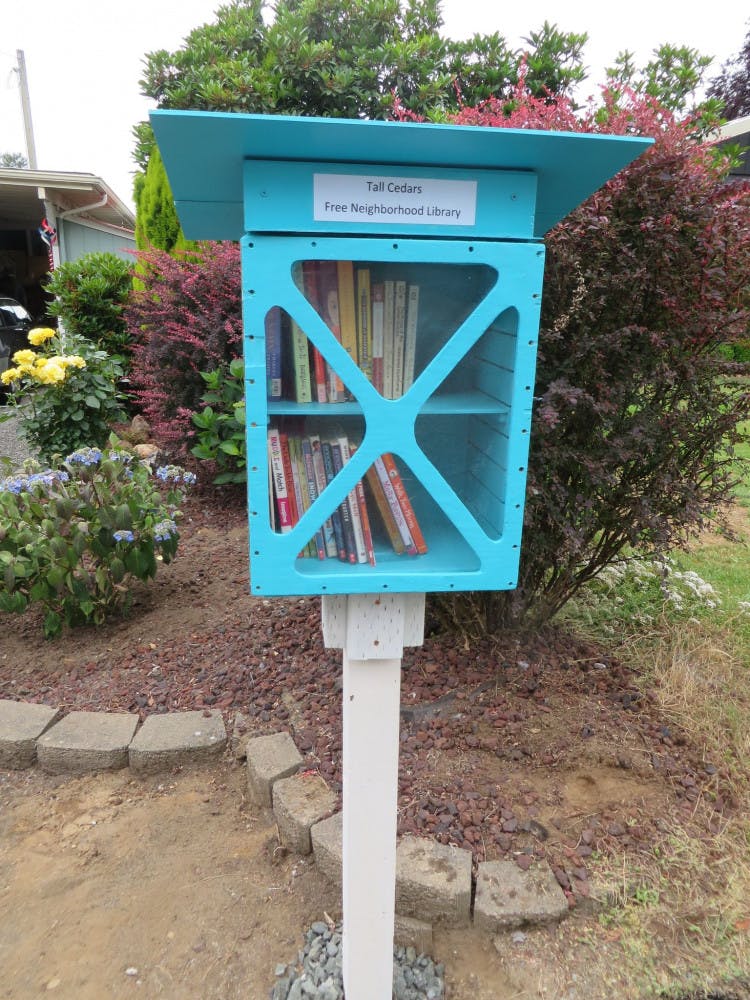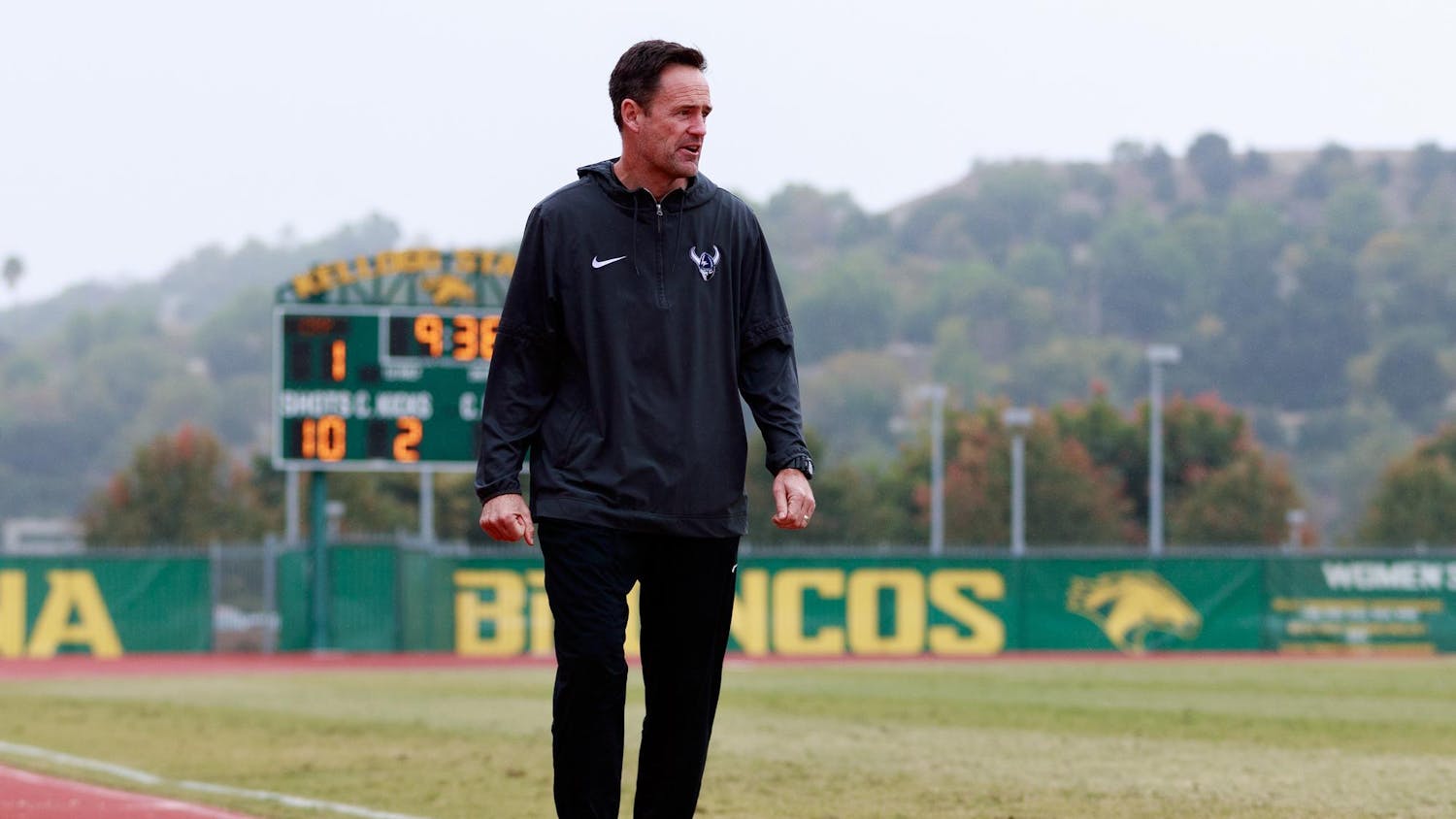
Janine Lamb's little library sits outside her home in Ferndale in 2019. // Courtesy of Janine Lamb
With public libraries closed or reduced to curbside pickups, some readers have found other avenues to not only rent books, but also connect with their community.
In some neighborhoods, one may notice a decorated box filled with books. Little Free Library is a non-profit organization that helps residents share books with neighbors by building or registering small library boxes in their hometowns.
Anyone can start a little library. Utilizing the organization’s website is just one option.
“I wanted to get it registered, but they charge $50,” said Janine Lamb, a Ferndale resident and mini library owner. “I always wanted to make my own after I first saw one in my sister’s neighborhood about six years ago.”
Lamb said she found an antique box with a see-through door that swung open, which she then transformed into her little library.
The libraries are typically decorated to catch people’s eyes and sometimes reflect the owner’s personality.
“There’s one off the main street I go by, I look through it, but I mostly bring books there,” said Mimi Kay, a frequenter of little libraries. “People really put their hearts into making them cute, some are really fancy.”
Kay said she likes the escape reading can provide, especially during the COVID-19 pandemic.
“Reading is one of those things we can fall back on in hard times,” Kay said.
In addition to local literary lovers, some businesses also provide books to residents in these wooden boxes.
“Our little library is upstairs in the loft in our shop, which is a little different,” said Echo Mae, co-owner of Northwest Yarns in Bellingham.
Mae and her business partner welcome anyone who likes to read into their shop.
“It’s very satisfying for us to see people walk away with a good book,” Mae said.
Some outdoor book collections have recently started stocking nonperishable foods and essential goods, like toilet paper and toothbrushes. The Little Free Libraries website has an additional map of the libraries so people in need can find them.
“I never really thought about how helpful it could be, reading and sharing food,” Kay said. “I think it’s great.”
Little libraries may be able to share food and an escape, but there are still some resources they canno’t provide.
Gabe Gossett, head of the Hacherl Research and Writing Studio at Western Washington University, said he knows public libraries provide positive impacts on people.
According to an email sent out by Western President Sabah Randhawa, Wilson Library implemented modified hours on March 13, 2020, and later closed all in-person services.
“While we consider what we do important and essential in some ways, at the same time we can’t say that we would want to introduce the risks of being open,” Gossett said.
Gossett raised concern about students not reaching out and utilizing the library’s resources while they remain online.
To find a registered little library or a box containing essential goods, enter your zip code here.
Caroline Brooks is a journalism student and a reporter for The Front. Her work includes local features and Bellingham-based news.





